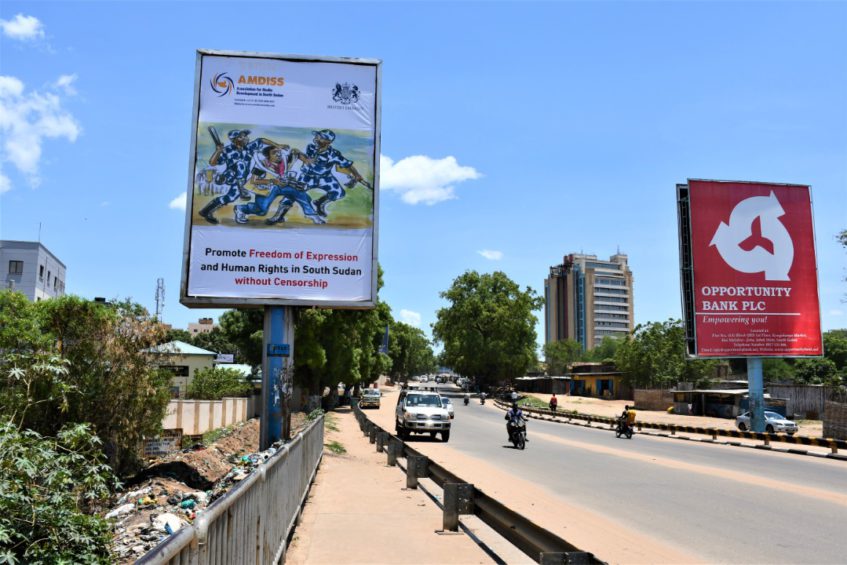You are here: Home | News | World News | 86 journalists killed in 2022 – Unesco

A billboard bearing a message titled: "Promote Freedom of Expression and Human Rights in South Sudan without censorship." erected by Association for Media Development in South Sudan on a road leading to the Malakia Police Station toward UAP Tower in Juba - credit | AMDISS | Juma
At least 86 journalists and media workers were killed worldwide last year in a record surge of 50 percent, the UN cultural agency UNESCO said on Monday.
The number of journalists killed in 2022 has sharply risen in comparison to lower cases of violence against the media in the previous three years.
58 journalists were reported killed worldwide between 2019 and 2021.
According to the French news agency AFP, the 86 murders in 2022 mean one death every four days for journalists.
Unesco found that no one was brought to justice in 86 killings.
“After several years of consecutive declines, the steep rise in the number of journalists killed in 2022 is alarming,” Unesco Director-General Audrey Azoulay said according to AFP.
“Authorities must step up their efforts to stop these crimes and ensure their perpetrators are punished, because indifference is a major factor in this climate of violence,” she added.
UNESCO indicated that the motives for killings of journalists included “reprisals for reporting on organised crime, armed conflict or the rise of extremism, and covering sensitive subjects such as corruption, environmental crimes, abuse of power and protests.”
At 44, more than half the journalists killed in 2022 were in Latin America and the Caribbean.
And three-quarters of the killings took place outside of full-scale conflicts.
19 journalists were killed in Mexico making it the deadliest country, followed by Ukraine where 10 journalists have been killed during the grueling war with Russia.
Nine media workers were also killed in Haiti.
UNSECO found that half of the journalists were killed while off-duty suggesting that the trend “implies there are no safe spaces for journalists, even in their spare time.”
In South Sudan, it is reported that the media landscape has seen improvement. But self-censorship and denial of access to information remains a challenge.
Support Eye Radio, the first independent radio broadcaster of news, information & entertainment in South Sudan.
Make a monthly or a one off contribution.
Copyright 2024. All rights reserved. Eye Radio is a product of Eye Media Limited.